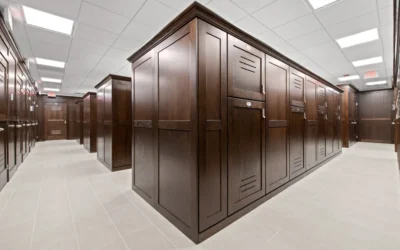It isn’t just new supply dragging down growth in the self-storage sector.
Rising property taxes continue to eat up a considerable piece of the budget pie at publicly traded self-storage REITs. In fact, just three of the REITs collectively paid about $290 million in property taxes last year.
And there doesn’t appear to be any relief in sight, as hefty bills for property taxes are once again on tap for the REITs in 2018.
Across the board, property taxes account for about one-third of operating costs for the publicly traded self-storage REITs, according to Matt Kopsky, a REIT analyst at Des Peres, MO-based financial services company Edward Jones.
Property tax blues
The ongoing increase in property taxes, along with an escalation in labor costs and an upswing in self-storage supply, will chip away at the REITs’ same-store NOI growth this year, Kopsky said.
For instance, Salt Lake City, UT-based self-storage REIT Extra Space Storage Inc. forecasts same-store NOI growth of 3 percent to 4.5 percent in 2018, compared with 6.9 percent in 2017. Meanwhile, Malvern, PA-based self-storage REIT CubeSmart predicts same-store NOI growth of 1.5 percent to 3 percent in 2018, down from 5.1 percent last year.
Ryan Lumb, a REIT analyst at Green Street Advisors, a commercial real estate research firm in Newport Beach, Calif., said that for the self-storage REITs, property taxes will be “an outsize driver of expense growth until we see some correction in property values, and it’s really anyone’s guess when that will be.”
During the latest earnings call for Extra Space, Chief Financial Officer Scott Stubbs said the “biggest pressure” on expenses this year stems from property taxes. The hike in property taxes is especially acute in the Florida, Illinois, Texas and the Mid-Atlantic, he said.
Extra Space predicts same-store property expenses will go up anywhere from 3 percent to 4.5 percent this year compared with 2017, including property taxes. Extra Space doesn’t break down the dollar figures for property taxes.
“Broad pressure” across the board
At the country’s largest self-storage REIT, Glendale, CA-based Public Storage, the property tax bill for 2017 totaled $199.6 million, up 4 percent from the previous year’s $191.9 million. Another 4.5 percent spike in property taxes is predicted for 2018.
As for CubeSmart, the story is much the same. CubeSmart’s property tax burden edged up by 4.3 percent from 2016 to 2017 — from $46.8 million to $48.9 million. The REIT is forecasting expenses, including property taxes, will grow by 3.5 percent to 4.5 percent in 2018.
Tim Martin, chief financial officer of CubeSmart, said the REIT is feeling the biggest property tax pinch in Florida, Illinois and Texas, with “broad pressure” across most of its markets. It appears the pain of property tax increases will linger for the next couple of years, he said.
The situation at Williamsville, NY-based self-storage REIT Life Storage Inc. is even more stark. Life Storage reported a 6.6 percent surge in property taxes last year, from nearly $38 million in 2016 to $40.5 million in 2017. The REIT is projecting another 5.5 percent to 6.5 percent hike in property taxes in 2018 versus 2017.
During the fourth quarter of 2017 alone, Life Storage’s property taxes shot up by 8 percent, with significant upturns in Austin, TX; Chicago, IL; St. Louis, MO; and some Florida markets, according to Andy Gregoire, the REIT’s chief financial officer.
David Rogers, CEO of Life Storage, said property tax hikes will “remain a significant factor” in pulling down NOI growth.
Preparing for more of the same
In line with the expectations at Life Storage, Tamara Fischer, chief financial officer of National Storage Affiliates Trust, said the Greenwood Village, CO-based self-storage REIT forecasts property taxes will climb by 5 percent to 6 percent this year compared with 2017. Specific dollar amounts for the REIT’s tax bills aren’t available.
Fischer recently told Wall Street analysts that the “biggest driver” of same-store operating expenses this year will be property taxes.
“That is something that we saw in 2017,” she said, “and we fully expect to see it again in 2018.”







